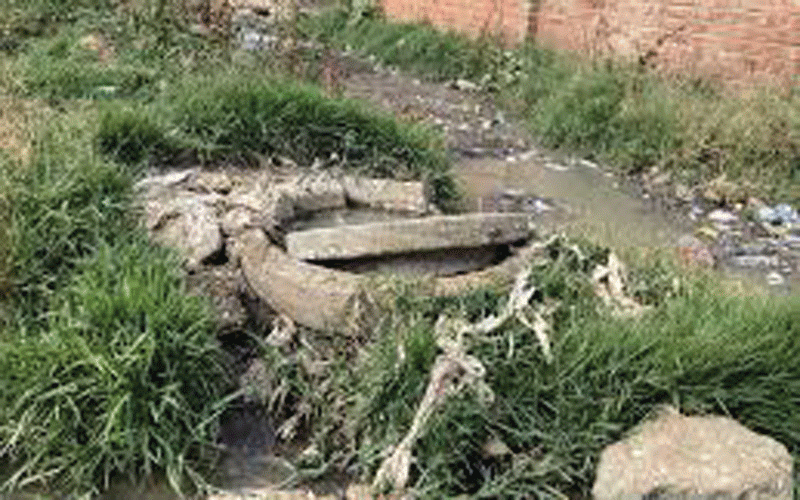
The father-son relationship is skewed as it comes.
Could it be that two bulls cannot stay in a single kraal?
Could it be that the older man in the house will be too harsh and very much controlling?
Or it's a case of wanting the best from their sons?
Is it possibly a case of “I have been your age, have done this and that, which may have contributed to the position I am in, so don't follow the same road?”
This relationship is different from that of a father and daughter.
Events of the past week in which a father beat his son to death was astonishing and frightening.
In Harare, a 41-year-old security officer allegedly tortured his 19-year-old son to death after he had failed a police recruitment test.
- Byo armed robber in court
- Woman jailed 12 years for indecent assault
- Magistrate jailed 3 years for abuse of office
- Zim’s poor batting hands India series
Keep Reading
The incident left netizens divided on whether the father did it out of love or cruelty.Though bringing up a family can never be a one-size-fits-all, it seems the traditional African father is a bit hard on their children, especially the son.
Speaking to NewsDay Weekender, Remigius, 52, from Chitungwiza, narrated how he handles his children.
"Well, most of us men appreciate our fathers when we become fathers also or when our fathers have passed on,” he said.
"That is when we will realise the importance and the roles our fathers play. Because we will be growing and experimenting a lot, we feel like our spaces are being invaded.
"Fathers love their sons, but we don't want to raise mama's boys or simply weaklings.
"A father carries you and throws you in the middle of a crocodile-infested river so that you unstuck yourself.
"In other words, they throw you to the deep end so that you learn how to survive."
Sekuru Muushi (67) from Mbare said when his wife gave birth to his firstborn son, his father gave the newborn baby a cow and named the baby after him. This was a way of celebrating the family's new addition.
"We were elated. My father named my son and gave him a cow," he recalled.
"He also gave my wife two goats to show gratitude to a daughter-in-law who gave birth to an heir.
"What it meant is that an heir is supposed to uphold the family legacy, culture, values, and be strong.
"As a man, you are supposed to be the provider, be able to provide solutions to problems affecting your family. You need to have survival skills.
"It's now a bit different from how we were brought up. Nowadays, our children spend a lot of time on the internet and copy what the Western world is doing.
To them, it's now the ideal thing to do."
Sekuru Muushi added, “This is what irks the traditional father. I was brought up in a poor and tough environment, and I had to fight for my survival.
Now I am providing for my family, but the person I think should take over from me isn't showing signs of being willing to take over."
Clinical psychologist and University of Zimbabwe lecturer Regina Banda said parents should always know that when they give birth, they have brought a different being on earth who will have their thinking.
Banda said it is always good not to use emotions when dealing with children, but to have a look at why they would have erred or failed to carry out a task.
"This is a long-lasting debate for us Zimbabwean natives. It's a battle between our cultural norms where we believe 'kuranga mwana' instils discipline versus the modern or scientific perspectives," said Banda.
"The idea behind discipline needs to link with reasoning so that the offence we intend to punish them for is not repeated. So when we are instilling punishment, it must be reasonable for the offence.
"And it must have a cognitive aspect to it. That helps the individual understand that they have erred in their actions.
"Sometimes it's because we want to instill punishment in them, and we feel the shamhu (whip) is the only way out. So at times, what we then argue in psychology is...the punishment given should be in line with the problem that we are trying to eliminate. So how does beating them work?"
Banda added that fathers may project their failures onto their kids.
"Fathers may think that is the way to raise their sons as hardened individuals who must not show vulnerability. So if they are soft on them...what if they become failures as men," Banda said.
Fathers may have learned from their parents how to discipline a son. This may result in what we call generational trauma.
"So we perpetuate more violence towards the son unknowingly because that's how we were raised as men. As for the girl child, fathers feel more like protectors and so would rather leave the harsh discipline to their mothers."
Sara Fobelets, a parent, coach and trainer, concurred with Banda, saying beating up children is not the answer.
“When parents use physical punishment, they instil fear rather than understanding.
"A child may obey out of fear, but this does not teach them how to behave well in future. More importantly, it damages trust and the parent-child relationship. If a child feels punished whenever they get into trouble, they are less likely to come to their parent for help when facing real problems,” she said.
Asked why the father-son relationship is usually like a cat-and-mouse game, Fobelets said most fathers believe boys should be tough.
"Boys are often discouraged from expressing feelings with phrases like “boys don’t cry,” which teaches them to suppress their emotions," she said.
"This can lead to anger and frustration building up inside, often expressed later through misbehaviour."
Social commentator Rebecca Chisamba also weighed in, saying beating a child is not the solution to issues at hand.
“In most cases, you find out that during the beating, a guardian will be reminding the child of everything they might have done before," said Chisamba.
"In Shona, we say kuverengera, meaning the anger will be building up. The danger comes when you do not self-restrain, as you would want the child to feel the pain.
"This may result in severe injuries or lead to death. All these people who beat their children to death don't do it intentionally. They will be thinking of inflicting pain, but may end up causing extensive damage.
"I think parents should understand their children, sit down with them and highlight where they feel the child is wrong, and let them know their expectations."
Chisamba said one way of disciplining a kid is withholding benefits.
"For example, a small kid wanting to watch cartoons on television, tell them you will not have access to the channel until you have done this. If it's money, likewise withhold it, or if going out, tell them that ‘until you do this assignment, I will not allow you’.”
She added that some fathers are feeling burdened by the economic hardships and might want to offload that burden to the boy child.
"Kare taiti ganga ibve ibve. Just because the child has grown, the father is expecting the boy child to perform some duties and chores that show he is now a man.
"But as a guardian, one needs to appreciate the stages a child passes through. You can not expect them to grow overnight. They need handholding and let them move one step at a time."
Some years back, renowned musician Shepherd Kunodziya, popularly known as Taso, had a song that discouraged parents from beating their children.
'Kurova vana handiko kurera vana' was part of the lyrics as he tried to warn against the practice.










